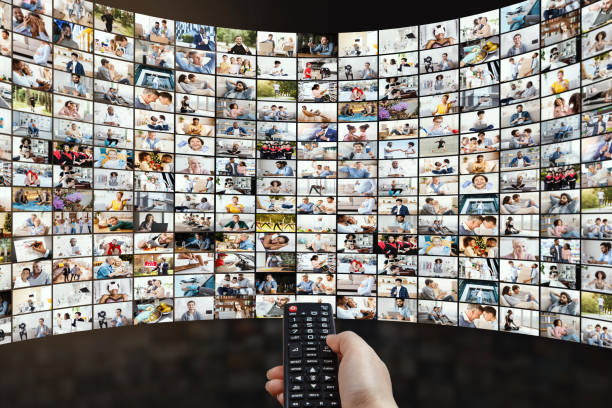How Important Is the Accuracy of Content in Educational Films?

Educational films have become a cornerstone in modern education, offering a dynamic and engaging way to convey complex information. However, the effectiveness of these films heavily relies on the accuracy of their content. Inaccurate information can lead to misconceptions, hinder learning, and ultimately fail to achieve educational objectives. This article explores the critical importance of content accuracy in educational films, highlighting the impact on learning outcomes, trust, and the overall educational experience.
Ensuring Accurate Learning Outcomes
Foundation of Knowledge
The primary goal of educational films is to impart knowledge. Accurate content is essential because it forms the foundation upon which students build their understanding of a subject. When educational films provide correct information, they help students develop a solid base of knowledge that they can apply in future learning and real-world situations. Inaccurate information, on the other hand, can lead to misunderstandings and gaps in knowledge that are difficult to correct later.
Avoiding Misconceptions
Misconceptions can be particularly damaging in education. If an educational film presents inaccurate information, students may internalize these errors and develop misconceptions that persist despite future learning efforts. Correcting these misconceptions requires additional time and effort from both students and educators. Therefore, ensuring that educational films present accurate content is crucial in preventing the spread of false information and fostering a clear and correct understanding of the subject matter.
Facilitating Critical Thinking
Accurate content in educational films supports the development of critical thinking skills. When students are presented with reliable information, they can analyze, evaluate, and synthesize this knowledge more effectively. Accurate content provides a trustworthy basis for students to engage in higher-order thinking processes, enabling them to draw informed conclusions and make reasoned judgments.
Building Trust and Credibility
Trust in Educational Resources
Trust is a fundamental component of the educational process. Students and educators must trust that the resources they use, including educational films, are reliable and accurate. If a film contains inaccuracies, it can erode trust in the educational material and the institution that provided it. Maintaining accuracy in educational films is essential to preserving the credibility of educational resources and ensuring that students and educators can rely on them for accurate information.
Professional Integrity
Educational content creators have a responsibility to maintain professional integrity by ensuring the accuracy of their materials. This responsibility extends to the production of educational films. When content creators prioritize accuracy, they demonstrate a commitment to high educational standards and ethical practices. This commitment not only enhances the credibility of the films but also sets a positive example for students regarding the importance of integrity in all forms of knowledge dissemination.
Enhancing Student Engagement and Motivation
Confidence in Learning
Accurate content enhances student confidence in their learning. When students know that the information they are receiving is correct, they are more likely to engage with the material actively and confidently. This confidence boosts motivation and encourages students to delve deeper into the subject matter. Conversely, if students discover inaccuracies in the educational films they watch, it can lead to frustration and disengagement, diminishing their motivation to learn.
Positive Learning Experience
Accuracy in educational films contributes to a positive learning experience. When films present information accurately and clearly, students can follow along without confusion or doubt. This clarity helps create an enjoyable and productive learning environment where students feel supported and well-informed. A positive learning experience fosters a lifelong love of learning and encourages students to pursue further education.
Supporting Educators
Teaching Aids
Educational films are valuable teaching aids that can enhance classroom instruction. Accurate content in these films ensures that educators can rely on them to supplement their teaching effectively. When films align with the curriculum and present accurate information, they can reinforce and expand upon the material covered in class. This alignment supports educators in providing a comprehensive and cohesive educational experience for their students.
Reducing Educator Workload
Accurate educational films can also reduce the workload for educators. When films present correct information, educators do not need to spend additional time correcting errors or clarifying misconceptions. This allows educators to focus on other aspects of teaching, such as facilitating discussions, providing individualized support, and developing engaging learning activities. Accurate films thus contribute to a more efficient and effective teaching process.
Implications for Different Subjects
Science and Mathematics
In subjects like science and mathematics, accuracy is paramount. These fields rely on precise data, formulas, and theories. Any inaccuracies in educational films related to these subjects can lead to significant misunderstandings and errors in problem-solving. For example, an inaccurate depiction of a scientific experiment or mathematical concept can mislead students and impede their ability to apply these principles correctly.
History and Social Studies
In history and social studies, accuracy is equally important but presents unique challenges. These subjects often involve interpreting complex events and perspectives. Inaccurate representations in educational films can distort historical facts and social realities, leading to biased or incomplete understandings. Accurate content ensures that students receive a balanced and truthful portrayal of historical events and social issues, promoting critical thinking and informed citizenship.
Language Arts and Humanities
Accuracy in language arts and humanities involves correct use of language, accurate representation of literary works, and faithful interpretation of cultural contexts. Inaccurate content in educational films can mislead students about literary analysis, language usage, or cultural understanding. Ensuring accuracy helps students develop strong language skills, appreciate literary art, and understand diverse cultural perspectives.
Challenges in Ensuring Accuracy
Keeping Up with Advancements
One of the challenges in maintaining accuracy in educational films is keeping up with advancements in knowledge and technology. Fields like science and technology evolve rapidly, and educational content must be regularly updated to reflect the latest discoveries and innovations. Content creators must stay informed about current developments and be prepared to revise their films to ensure continued accuracy.
Addressing Bias
Another challenge is addressing bias in educational films. Content creators must strive to present information impartially and from multiple perspectives, especially in subjects like history and social studies. Avoiding bias requires careful research, consultation with experts, and a commitment to fair representation. Ensuring accuracy in this context means providing a balanced view that respects diverse viewpoints and experiences.
Conclusion
The accuracy of content in educational films is of paramount importance. Accurate films provide a solid foundation of knowledge, prevent misconceptions, and facilitate critical thinking. They build trust and credibility, enhance student engagement and motivation, and support educators in their teaching efforts. While maintaining accuracy presents challenges, especially in rapidly evolving fields and when addressing bias, the benefits far outweigh the difficulties. By prioritizing accuracy, educational films can significantly enhance the learning experience and contribute to the overall effectiveness of education.
click here to visit website








